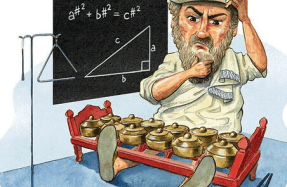
Late in the afternoon of 19 November, 1965 – a Friday – the Hungarian conductor Georg Solti steered the Vienna Philharmonic Orchestra through the placid concluding measures of Wagner’s Die Walküre, the final downbeat landing at precisely 5.30pm. It was the end of an epic journey to make the first complete studio recording of Wagner’s Der Ring des Nibelungen, a cycle of four operas lasting 15 hours in total.
That journey had started seven years earlier on 24 September, 1958, when sessions to record – the curtain-raiser to Wagner’s tetralogy – began in the Sofiensaal, Vienna, a converted 19th-century steam bath known for excellent acoustics. The road to that opening session had, however, itself been diffcult. Decca, the company making the recording, needed considerable persuasion that a cycle made sense commercially. Would enough copies ever be sold, they wondered, to cover the enormous financial investment required to complete the project?




